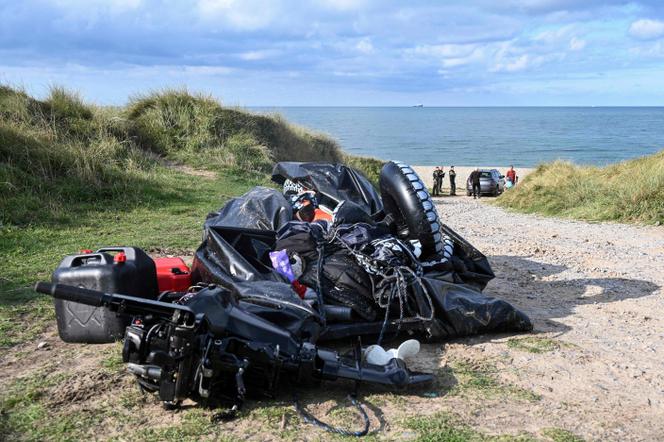


Some deaths are predictable. Those that occurred on the night of Saturday, September 14 off Ambleteuse, a small coastal town in the Northern French region of Pas-de-Calais, certainly were. Eight men died while attempting to reach the UK aboard an inflatable dinghy. This tragedy occurred after another devastating event on September 3 when 12 people drowned and two others disappeared after their boat sank off Wimereux, a nearby town to Ambleteuse.
These two shipwrecks are the most serious to have occurred in the English Channel since the beginning of the year. They bring the total number of migrants who lost their lives in 2024 trying to reach England aboard dinghies to 46, according to an Interior Ministry estimate. While more than 23,000 people have made the crossing, nearing the record set in 2022, the death toll is unprecedented.
By Saturday, the weather improved, making it easier for people to attempt to cross the water after several days of bad weather. Groups of people were getting ready to try their luck, heading for the coast, hiding in the woods and waiting for a signal from their smugglers. On that day, the British authorities reported the arrival of 801 people aboard 14 boats. That's almost 60 passengers in each boat, which are generally less than 10 meters long and of poor quality. Since the emergence of the "small boat" phenomenon in 2018, boats have become more overcrowded every year.
"The work done [by authorities in European countries] to stop the supply [of smugglers' networks] of dinghies means we're seeing more overcrowded vessels than before," Tony Smith, a former boss of the British Border Force, told the Emirati daily The National on July 29.
According to Jacques Billant, Prefect of the Pas-de-Calais region, who held a press briefing on Sunday, the boat that sank overnight had over 50 people on board, "from Eritrea, Sudan, Syria, Afghanistan, Egypt and Iran." Few of them were wearing life jackets. Although the boat was launched at Ambleteuse shortly before midnight, "it quickly faced trouble," said Billant. "The boat was obviously torn apart on the rocks," in the immediate vicinity of the beach.
In a press release, the Préfecture Maritime de la Manche et de la Mer du Nord ("Maritime Prefecture of the Channel and the North Sea") explained that that night, the Minck, a state-chartered vessel sent out on surveillance, observed that "the boat was heading toward the beach at Ambleteuse and was unable to offer any assistance from the sea until the boat reached the beach."
You have 42.38% of this article left to read. The rest is for subscribers only.
